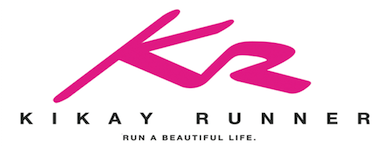Last weekend I finished the Gatorade Manila Half Marathon. I signed up for that because I’m preparing for the Sydney Marathon. That will be my fifth marathon – my fourth open one because the third one I ever did was at the end of an ironman. So it will be my fifth marathon in the 15 years I’ve been running.
I’ve been around for quite some time, and I’ve always been running even if I didn’t sign up to some of the biggest run events of the past decade. For some reason some people think this is my big comeback. Anyway, it’s been nice to see new people on the road, especially at the races I’ve attended over the past two years.
However, over the past month some news publications from mainstream media have covered our sport claiming that running is this new big thing, a phenomenon that’s happened just over this year.
Either the people who wrote these articles have a memory like Dory’s from Finding Nemo, where anything long-term is erased – or they just haven’t been around long enough to know that there’s actually history and context behind the running boom we’re experiencing. (This isn’t even the biggest one – yet.)
Watch my vlog about this below, or scroll down to read my thoughts about this so-called “running era.”
Globally, two running booms have been recognized and studied. (Refer to this document about the IAAF’s attempt to regulate road running, as well as the introduction to this study about the democratization of the second running boom.) The first one happened sometime in the late 1960’s and extended until the 1980’s; many of the prestigious events we look forward to competing at were established, like the races that became the World Marathon Majors.
The second running boom happened in the late 1990’s to the early 2000’s. Unlike the first running boom where people picked up running as a fitness activity (“jogging”), this second running boom saw more people sign up to organized mass participation events. The number of finishers at road races of all distances in the United States increased by 300% from 1990 to 2013.
The Philippines being culturally linked to US culture and trends also experienced these two running booms, and I lived through that second running boom. By 2019, participation in running events was actually on the downturn. Then the pandemic hit.
A lot of people who had never run before took up running, because it was something you could do with minimal equipment and you could do the required physical distancing. It was something that you could do outside the confines of a structure or facility like a gym.
Then of course that birthed a hunger for running events when we were finally allowed to hold them again. Nielsen in a report to World Athletics in 2021 found that in a survey across 10 countries, more people had taken up running during the pandemic, and all of those intended to maintain their passion for the sport.
So it’s funny to see the news articles published in the Philippines claiming that mass participation in running is a very recent phenomenon when in fact the beginnings of this current running boom extend to 2020.
Another thing that these articles fail to mention is the relationship between running and economic recession. Running USA released an article in early 2020 linking the Great Recession of the 1990’s to the early 2010’s to the second running boom peaking in 2013 and that the uncertainty the pandemic put the world through would result in a third running boom, “the biggest the world has ever seen.” They saw that during the second running boom once economic conditions improved, runners flocked to races.
We saw that happen here in the Philippines in the mid-2010’s, when the Pasig International Marathon drew more than 100,000 runners across all its race categories. No current race has achieved that feat yet.
Running is a sport that is resilient through recession because it’s relatively inexpensive (of course, it’s not cheap) and the physical and mental benefits help during times of uncertainty. Running gives you something you can control, unlike the economy and even being able to hold on to your job. With running, what you put in is what you’re going to get out of it. That sense of control helps to keep mental health on an even keel.
So all of this is what I found lacking in the coverage of this current running boom. In this age where newswriting means fast turnover and results in just storifying social media posts instead of actually doing a bit more research, the journalism around running just doesn’t have the context and history that would enable new runners to understand where the running community has been, and where it can be going.
Yes, we are in our third running boom and if we as a community can support this well enough and not burn out, this will be bigger than the second running boom and we’ll see a lot more runners running faster, fitter, and longer. That can only be a good thing.
That being said I do think think that there is a culture gap between the newer runners, and those of us who have been here more than a decade. Mutual respect and understanding that people can have different goals and motivations for doing the same sport can go a long way in avoiding or resolving misunderstandings and disagreements.
I just want to say that running has been around for quite some time and it will be around for longer than these news articles are going to trumpet that there is a running boom.
The real accomplishment is actually being able to continue in your running era — or as takbo.ph said, your running eon. 😉
Runners of today have a lot to thank the OG runners for. I have a lot to thank those first running boom runners for because they laid the groundwork for mass participation races upon which the second running boom organizers built and which the third running boom runners are now enjoying.


This is so true- thank you for writing this.
As an “OG runner” for over 30 years, I learned from the lessons of others decades prior. Running Is definitely a “pay it forward” community.
Amazing how people can be across the world and be connected through running! Keep it up!